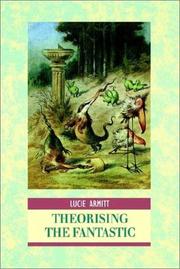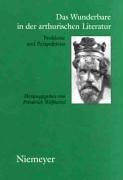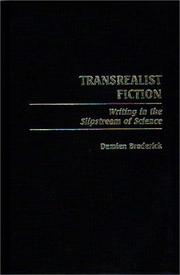| Listing 1 - 10 of 19 | << page >> |
Sort by
|
Book
ISBN: 274921646X Year: 2012 Publisher: Toulouse (33 avenue Marcel Dassault 31500) : ERES,
Abstract | Keywords | Export | Availability | Bookmark
 Loading...
Loading...Choose an application
- Reference Manager
- EndNote
- RefWorks (Direct export to RefWorks)
À l'heure où le surnaturel envahit toujours plus nos écrans, où Stephen King et J.K Rowling restent parmi les auteurs les plus lus au monde, les adultes sont souvent déconcertés par l'appétence de leurs ados pour l'horreur fantastique. Mais que peuvent-ils bien trouver dans ces récits sanguinolents de vampires ou de loup-garous, complètement irréalistes ? En voilà du temps perdu... L'auteur ouvre, avec tendresse et humour, une porte sur le monde des adolescents et montre pourquoi ceux-ci sont tellement attirés par l'horreur fantastique, pourquoi ce n'est pas une si mauvaise chose et enfin comment cet intérêt peut alimenter la pratique clinique des professionnels. En effet, l'horreur fantastique et ses archétypes pourraient aider les adolescents à affronter et élaborer les angoisses issues des modifications pubertaires et d'une toute nouvelle autonomie. Car l'adolescence est terrifiante en soi : alors que les repères construits dans l'enfance vacillent, ce n'est pas si facile de se séparer de ses parents pour aller explorer le vaste monde. S'appuyant sur l'actualité culturelle (Twilight, Harry Potter) et sur les classiques de l'horreur fantastique, Marion Hendrickx analyse les cinq grandes figures mythiques horrifiques : le vampire, la maison hantée, le loup-garou, la jeune fille et la créature de Frankenstein. Elle propose aux adultes qui prennent soin d'adolescents de considérer cet univers comme un espace culturel privilégié à explorer avec eux, reflet d'un monde interne en pleine mutation.
Adolescent psychology --- Horror --- Fantastic, The (Aesthetics) --- Fear --- Social Sciences --- Psychology --- Psychological aspects
Book
ISBN: 1316484424 1316484858 1316485714 1316485285 1316487431 1139087428 1107018145 110761029X 1316481840 Year: 2016 Publisher: Cambridge : Cambridge University Press,
Abstract | Keywords | Export | Availability | Bookmark
 Loading...
Loading...Choose an application
- Reference Manager
- EndNote
- RefWorks (Direct export to RefWorks)
Fantasy has been an important and much-loved part of children's literature for hundreds of years, yet relatively little has been written about it. Children's Fantasy Literature traces the development of the tradition of the children's fantastic - fictions specifically written for children and fictions appropriated by them - from the sixteenth to the twenty-first century, examining the work of Lewis Carroll, L. Frank Baum, C. S. Lewis, Roald Dahl, J. K. Rowling and others from across the English-speaking world. The volume considers changing views on both the nature of the child and on the appropriateness of fantasy for the child reader, the role of children's fantasy literature in helping to develop the imagination, and its complex interactions with issues of class, politics and gender. The text analyses hundreds of works of fiction, placing each in its appropriate context within the tradition of fantasy literature.

ISBN: 0340605871 Year: 1996 Publisher: London Arnold
Abstract | Keywords | Export | Availability | Bookmark
 Loading...
Loading...Choose an application
- Reference Manager
- EndNote
- RefWorks (Direct export to RefWorks)

ISBN: 3484640243 3110939851 Year: 2003 Publisher: Tübingen : Max Niemeyer,
Abstract | Keywords | Export | Availability | Bookmark
 Loading...
Loading...Choose an application
- Reference Manager
- EndNote
- RefWorks (Direct export to RefWorks)
Miraculous phenomena as an integral feature of Arthurian literature have always been a central focus of research, notably in approaches centering on the history of motifs and sources, and those with a structural bent. But with the new concern for issues posed by the history of mentality, problems of acculturation and functionalization have moved to centre stage. Francis Dubost's theories on the fantastic play a cardinal role in this development. These proceedings of an interdisciplinary research colloquium of the German section of the International Arthurian Society discuss the state of resear
Book
ISBN: 1443816469 9781443816465 9781443810043 1443810045 1443810045 Year: 2016 Publisher: Newcastle-upon-Tyne
Abstract | Keywords | Export | Availability | Bookmark
 Loading...
Loading...Choose an application
- Reference Manager
- EndNote
- RefWorks (Direct export to RefWorks)
Fantastic, The, in literature. --- Fantasy fiction --- English fiction --- Fantastic fiction --- Heroic fantasy (Fiction) --- Fantasy literature --- Fiction --- Fantastic, The (Aesthetics), in literature --- History and criticism.
Book
ISBN: 178204826X 1571139621 Year: 2016 Publisher: Rochester, NY : Camden House,
Abstract | Keywords | Export | Availability | Bookmark
 Loading...
Loading...Choose an application
- Reference Manager
- EndNote
- RefWorks (Direct export to RefWorks)
Liz Jensen, a British author of eight novels, is among today's most innovative writers. Her literary thrillers occupy the terrain between realism and science fiction. This first study of Jensen centers on the very diverse "otherworlds" she creates in each of her novels, which can consist of an indeterminate space of ontological instability, a zone in which real and unreal converge to destabilize the realist text, as in Egg Dancing (1995) and The Ninth Life of Louis Drax (2004). In other novels the otherworld relies on defamiliarization: thus in War Crimes for the Home (2002) the experience of war is transformed by being seen from a woman's perspective. In still other cases, the otherworld spans the novel's entire topos, as in The Paper Eater (2000), the full-blown utopia at the center of Jensen's oeuvre.
Jensen's work approaches contemporary social issues such as religious fundamentalism, ecological disaster, and assisted procreation. Simultaneously, itdisplays a number of characteristics of erudite fiction, including self-reflexivity, inter- and intratextual reference, parody, pastiche, and burlesque. Notwithstanding the "popular" elements of Jensen's work, Helen E. Mundler's study adopts a rigorously academic approach to it, referencing canonical works but also more innovative texts, particularly by contemporary women writers, as points of comparison.
Helen E. Mundler is Senior Lecturer in English Studies at UPEC (Université Paris-Est Créteil) with a research affiliation at the Université Paris-X Nanterre-La Défense.
Book
ISBN: 3954876159 9783954876150 9788416922017 8416922012 9783954875504 3954875500 Year: 2017 Publisher: Madrid Frankfurt am Main Iberoamericana Vervuert
Abstract | Keywords | Export | Availability | Bookmark
 Loading...
Loading...Choose an application
- Reference Manager
- EndNote
- RefWorks (Direct export to RefWorks)
A través de los catorce capítulos que componen este libro se realiza un recorrido por lo fantástico español desde los primeros años del modernismo hasta el presente, y a través de sus diversas manifestaciones ficcionales: narrativa, teatro, cine, televisión y cómic, mostrando, además, las interrelaciones y mutuas influencias entre ellas, y trazando así las líneas que definen la historia y evolución de lo fantástico en la cultura española contemporánea.
Fantasy literature, Spanish --- Spanish literature --- Fantastic, The. --- Fantastic, The, in literature. --- Fantasy fiction --- Literatura fantástica española --- Literatura española --- El fantástico. --- El fantástico en literatura. --- Fantasía de ficción --- Fantastic, The (Aesthetics), in literature --- Fantastic, The (Aesthetics) --- Aesthetics --- Fantastic literature, Spanish --- Spanish fantasy literature --- History and criticism. --- Historia y crítica.
Book
ISBN: 3598730101 3111833178 3110957590 9783598730108 Year: 2003 Publisher: München Saur
Abstract | Keywords | Export | Availability | Bookmark
 Loading...
Loading...Choose an application
- Reference Manager
- EndNote
- RefWorks (Direct export to RefWorks)
Imagination (Philosophy) --- Fantastic, The --- Fantasy literature --- History and criticism --- Religious aspects --- Fantastic, The. --- History and criticism. --- Religious aspects. --- Fantastic, The (Aesthetics) --- Aesthetics --- Philosophy --- Fantasy literature - History and criticism --- Fantastic, The - Religious aspects
Book
ISBN: 9781438435534 1438435533 143843555X 1441696806 1438435541 Year: 2011 Volume: *2 Publisher: Albany : ©2011 State University of New York Press,
Abstract | Keywords | Export | Availability | Bookmark
 Loading...
Loading...Choose an application
- Reference Manager
- EndNote
- RefWorks (Direct export to RefWorks)
The Unconcept is the first genealogy of the concept of the Freudian uncanny, tracing the development, paradoxes and movements of this negative concept through various fields and disciplines from psychoanalysis, literary theory and philosophy to film studies, genre studies, sociology, religion, architecture theory, and contemporary art. Anneleen Masschelein explores the vagaries of this 'unconcept' in the twentieth century, beginning with Freud's seminal essay 'The Uncanny,' through a period of conceptual latency, leading to the first real conceptualizations in the 1970s and then on to the present dissemination of the uncanny to exotic fields such as hauntology, the study of ghosts, robotics and artificial intelligence. She unearths new material on the uncanny from the English, French and German traditions, and sheds light on the specific status of the concept in contemporary theory and practice in the humanities. This essential reference book for researchers and students of the uncanny is written in an accessible style. Through the lens of the uncanny, the familiar contours of the intellectual history of the twentieth century appear in a new and exciting light.
Aesthetics, Modern --- Fantastic, The. --- Uncanny, The (Psychoanalysis). --- 82:159.9 --- 82:159.9 Literatuur en psychologie. Literatuur en psychoanalyse --- Literatuur en psychologie. Literatuur en psychoanalyse --- Fantastic, The --- Uncanny, The (Psychoanalysis) --- Psychoanalysis --- Fantastic, The (Aesthetics) --- Aesthetics --- History

ISBN: 0313311218 0313003165 9780313003165 9780313311215 9798216027324 Year: 2000 Publisher: Westport, Conn. Greenwood Press
Abstract | Keywords | Export | Availability | Bookmark
 Loading...
Loading...Choose an application
- Reference Manager
- EndNote
- RefWorks (Direct export to RefWorks)
Fiction --- Thematology --- Science fiction --- Fantastic, The, in literature. --- Realism in literature. --- Reality in literature. --- Neorealism (Literature) --- Magic realism (Literature) --- Mimesis in literature --- Fantastic, The (Aesthetics), in literature --- Science --- Science stories --- Future, The, in literature --- History and criticism --- Theory, etc. --- Authorship.
| Listing 1 - 10 of 19 | << page >> |
Sort by
|

 Search
Search Feedback
Feedback About UniCat
About UniCat  Help
Help News
News